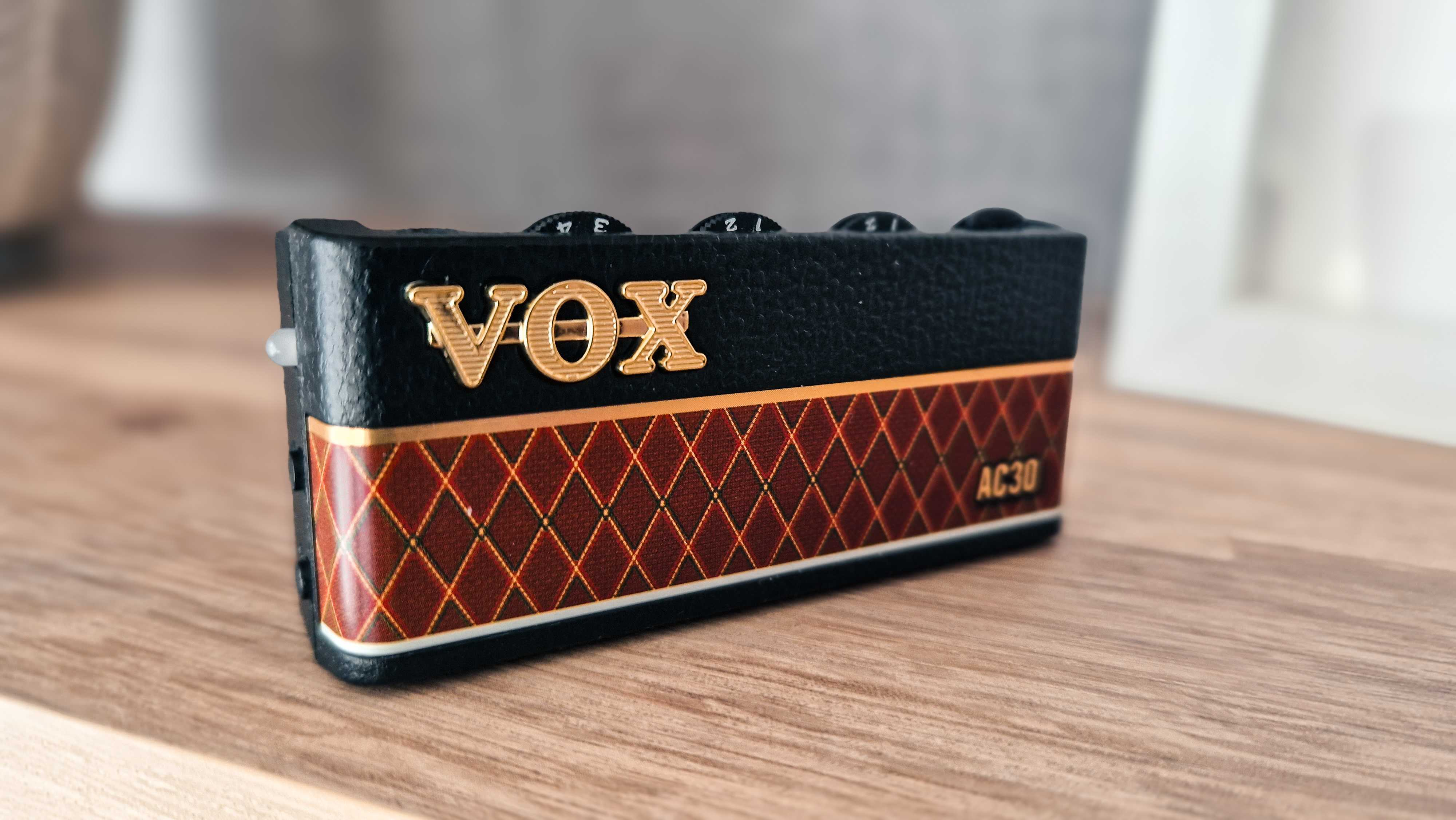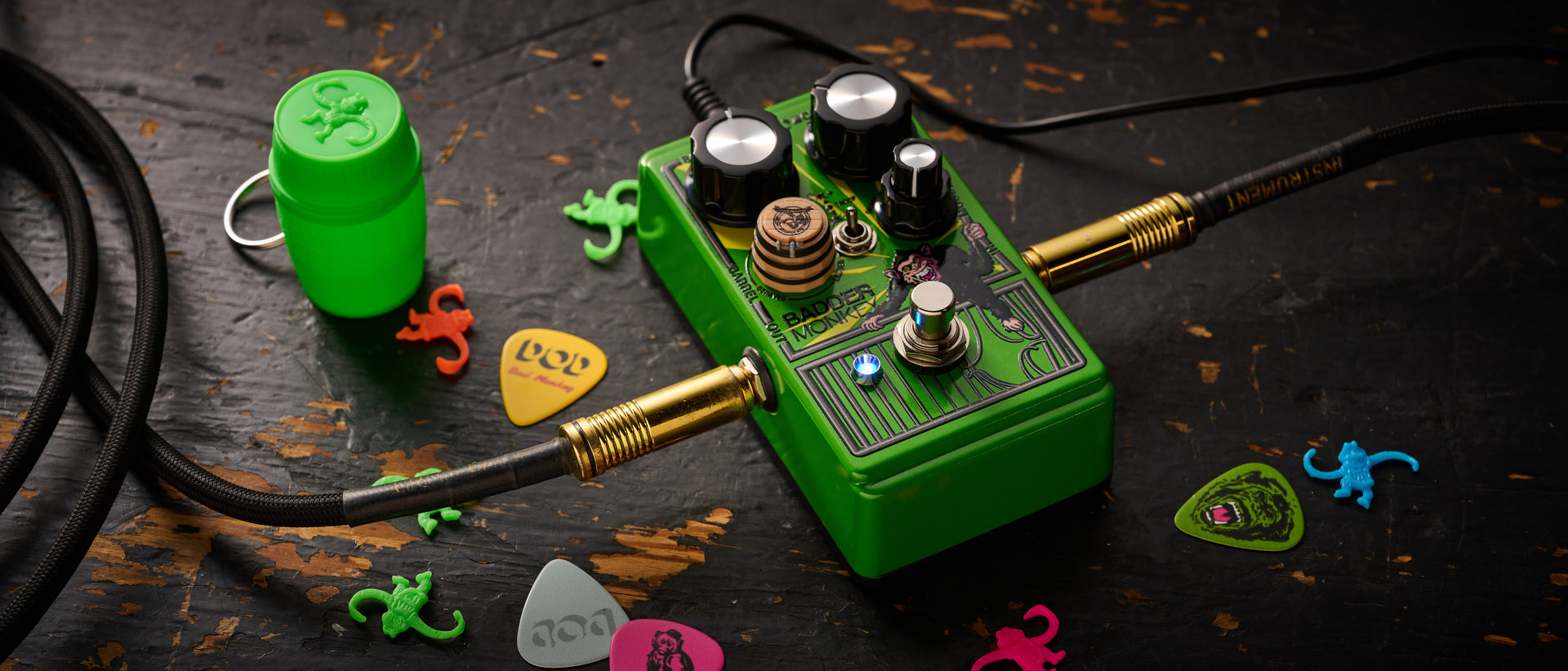Guitar World Verdict
There's a reason the Vox amPlug has been the go-to headphone amp for many players since they launched in 2007 – they offer a fun practice solution for bedroom players, and they actually sound great. Now, while Vox has refreshed the range for the new generation, they haven't lost the stellar sound and simple design that many loved about the previous iteration. That said, the latest version does lack some of the modern features found on similar units.
Pros
- +
Very affordable
- +
Warm and convincing tones
- +
Good battery life
Cons
- -
Controls can be tricky to read at times
- -
No Bluetooth
- -
It can sit awkwardly on certain guitars
You can trust Guitar World
As much as we love the sound of a tube amp that's pushed within an inch of its life, when it comes to home practice, a fully cranked combo just isn't practical. It's no surprise, then, that many players turn to the convenience of the humble headphone amp. These affordable practice solutions often provide stadium-filling sounds directly to your ears, all while offering a much quieter environment for your housemates – meaning no one needs to know you're still struggling to nail the opening tapping gymnastics of Hot For Teacher.
Now, there are plenty of these amps available, with almost every brand having some kind of pocket-sized amp of their own – but there is one that towers above the rest in terms of popularity, and that's the Vox amPlug.
Now on the third generation, the new version of the amPlug offers players a familiar sound and playing experience but with a slightly updated aesthetic. This all-analog headphone amp is available in a whopping seven different styles, with almost every genre catered for. UK Drive, US Silver and Boutique offer various flavors of classic overdrive, while High-Gain delivers a gut punch of saturation perfect for metal fans. Now, it's not only guitar players that can get in on the amPlug action, as there are two models available for the keepers of the low-end, Bass and Modern Bass.
Lastly, we have the unit we are reviewing today, the AC30. Beloved by everyone from Dave Grohl to Tom Petty, John Lennon, Brian May and The Edge, this diamond-clad combo is the company's most iconic model and unsurprisingly tops our list of the best Vox amps of all time.
This new amPlug version looks to invoke the spirit of the legendary twin speaker amp in a much more accessible format and features both channels of the original. The Normal channel is cleaner and more open and the Top Boost circuit produces a hard-rocking punch. It also has a plethora of integrated effects, such as tremolo, chorus, delay and reverb, as well as handy built-in rhythm patterns to aid in your timekeeping.
Design and build quality
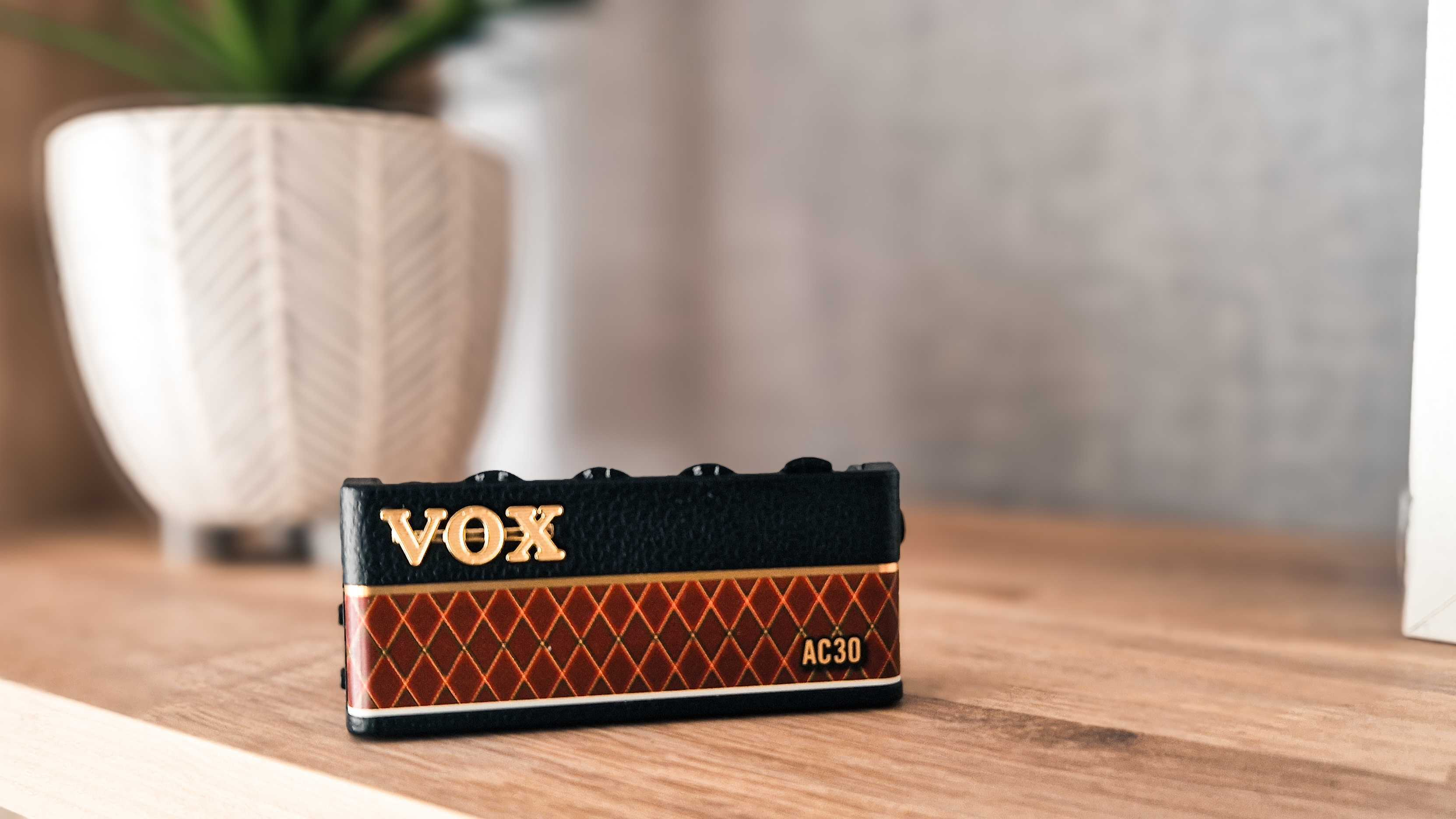
Unboxing the new AC30 amPlug 3, we immediately noticed how much sleeker it looks compared to the previous version. The edges have been rounded over, and the white border of the original has been removed and replaced with a more minimal design. We are also happy to see the unit comes with the necessary AAA batteries needed to power the device – meaning you only need to provide the electric guitar and headphones to get jamming.
Despite feeling very lightweight, the headphone amp itself feels reasonably robust and pretty well made. The locking mechanism of the jack works well and is reassuringly stiff, meaning the unit won't move around while you're playing.
All the latest guitar news, interviews, lessons, reviews, deals and more, direct to your inbox!
In terms of usability, the amPlug is somewhat intuitive, with each of the limited controls working precisely as you'd expect. Across the top of the unit, you'll find dials for adjusting the gain, tone and volume, as well as a dual control for FX/Rhythm.
Now, we understand that space is limited on such an undersized product, but the controls are very small and it can be tricky to see what dial you are adjusting at certain angles – this becomes more of a problem with guitars that have their output jacks in awkward positions.
While we are talking about the controls, we would also have preferred to have some kind of indicator for the effects so we know at a glance which effect we had loaded – much like the LED found on Fender's Mustang Micro. As it stands just now, you need to scroll through each effect and simply use your ears to decipher if you have chorus, reverb or tremolo selected.
That said, this isn't a massive problem, as once you get a feel for the controls, you'll soon be able to adjust them without looking anyway.
We tested the unit very extensively, and there appears to be plenty of juice left in the batteries. Vox states that you can expect to get around 10 to 16 hours of use on a standard set of alkaline batteries, which we must say is rather impressive. Now, it's worth mentioning that many of Vox's contemporaries have opted for a USB rechargeable battery instead of the AAAs found here – which is arguably more convenient. Perhaps Vox could add this feature to the next iteration?
Sound and functionality
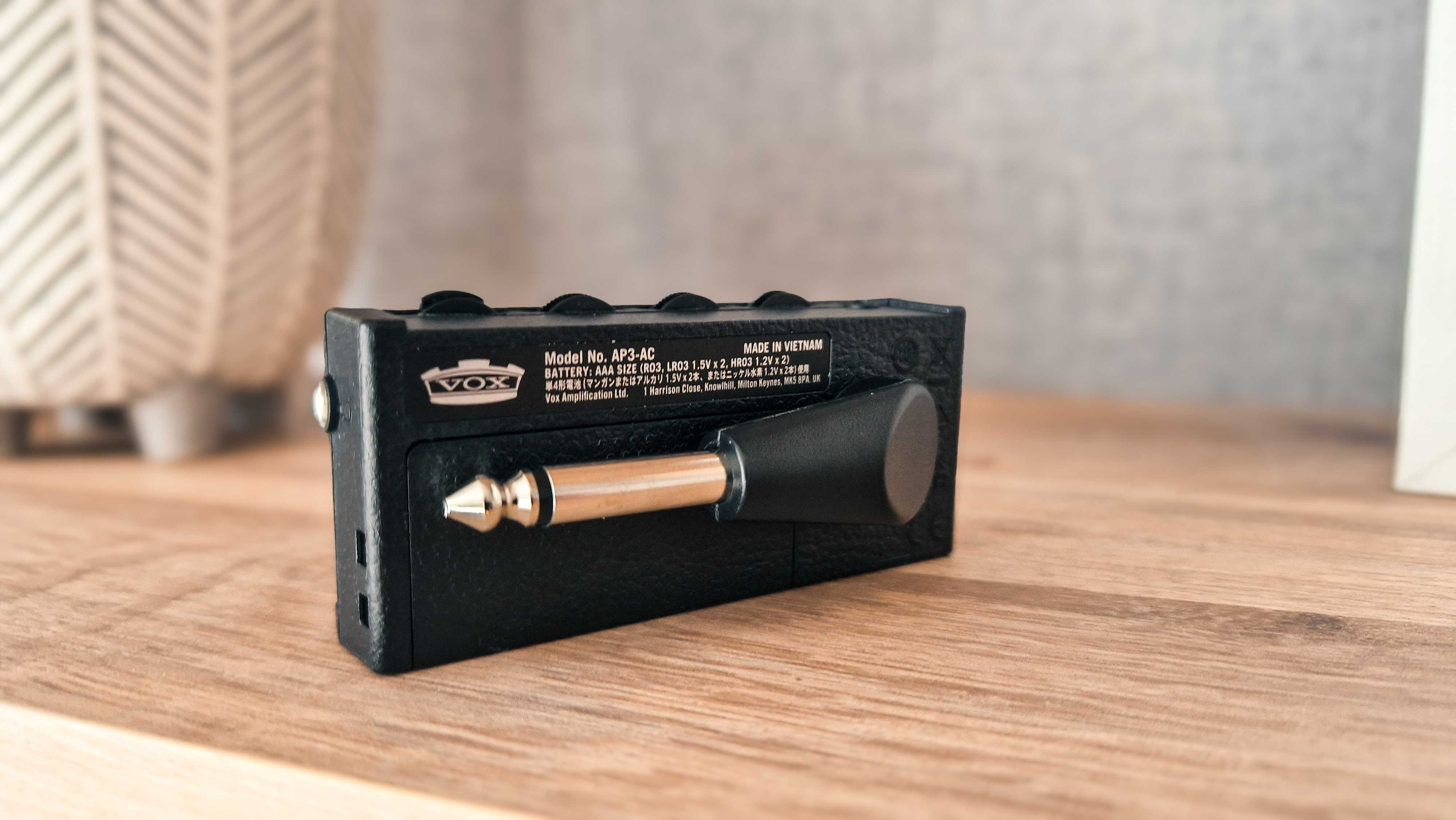
Moving on to the sound, and we're happy to report that this pint-sized device is choc-full of Vox goodness. Now, as the name suggests, Vox is trying to emulate the sound of their beloved AC30 combo and we think they've gotten pretty close with the amPlug.
The Normal channel – indicated by the green LED – delivers that sweet, crisp clean you'd expect from a Vox while also breaking up in a very natural way when you crank the gain control. The expressive nature of this channel is perfect for blues and a pure joy to play with. Switching the Top Boost channel – red LED – and things get a little more hairy and rowdy. This channel has a perfectly warm overdrive that eats classic rock riffs for breakfast. Equally as expressive as the clean channel, the Top Boost circuit seems to deliver a lot more gain than you'd typically expect from an AC30, but that isn't a bad thing. The tone here is deceptively versatile and might just be our favorite from across the entire amPlug range.
As we said above, there is the option to layer effects onto your preferred tone. Reverb and tremolo are, of course, found on the original AC30 and are very well represented here. Delay isn't an effect seen on the vintage examples, but it is a great addition to this modern version – and the tap tempo located on the side of the unit is a nice touch for dialing in the perfect repeats.
The drum machine functions well and is accessed using the same control as the effects – simply hold down the control. The drum variations are limited, but for practicing your timing, there is plenty on offer. There is a collection of basic grooves from AC/DC style hard rock beats to blues shuffles and a couple more complex rhythms. As you'd expect, you can use the tap tempo to change the speed of the drums to best suit the song you are playing.
Lastly, there's an aux input on the device, which can be used to jam along with your favorite songs. While this is undoubtedly a handy feature, the addition of another cable makes jamming a little uncomfortable. Many of Vox's rivals have already integrated Bluetooth audio streaming into their own headphone amps, such as the NUX Mighty Plug 3 and the previously mentioned Fender Mustang Micro, leaving a standard aux-in to feel a little outdated on a brand-new product that was launched in 2024.
Final thoughts
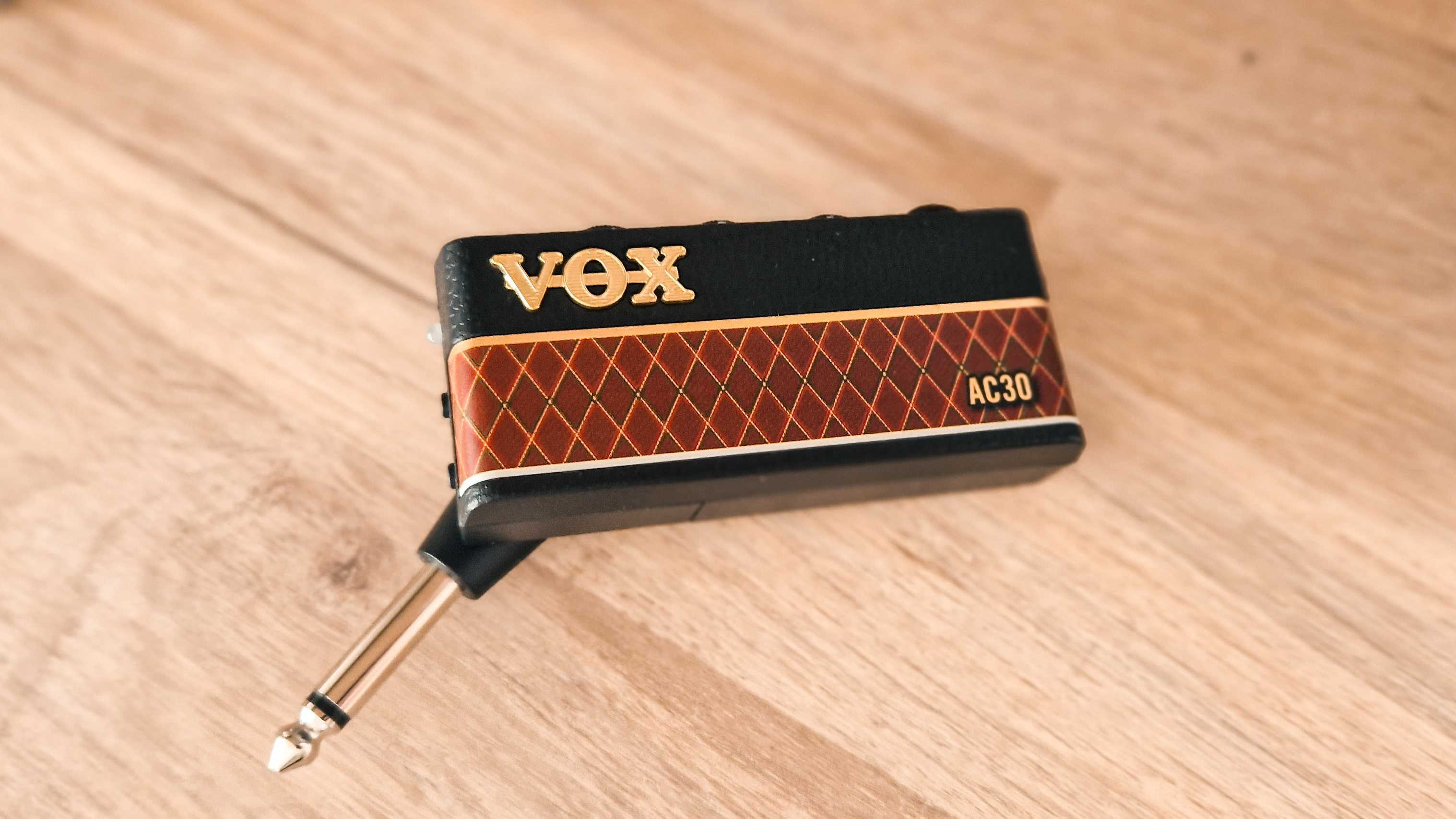
There's a lot to like about the new generation of Vox amPlug. The sleeker design and stellar tones still make this one of the greatest headphone amps on the market and a pretty excellent gift for guitarists, too.
Yes, we would like to see a few modern features added to the device, such as USB charging and Bluetooth audio. Still, at $49.99, Vox is offering pretty remarkable value with a practice device that is simple to use, well made, and that more than delivers on that iconic Vox tone.
Specifications
- In/outs: Headphone Jack (3.5mm), Aux Jack (3.5 mm)
- Power: 2 X AAA Batteries
- Battery life: Up to 10/16 hours
- Channels: Normal/ Top Boost
- Effects: Reverb, Chorus, Delay and Tremolo
- Dimensions: 87 x 33 x 39mm (plug retracted)
- Weight: 40g
- Contact: Vox

Daryl is a Senior Deals Writer at Guitar World, where he creates and maintains our 200+ buyer's guides, finds the best deals on guitar products, and tests the latest gear. His reviews have been featured in prominent publications like Total Guitar, Guitarist, Future Music magazine, and MusicRadar.com.
During his career, he has been lucky enough to talk to many of his musical heroes, having interviewed Slash and members of Sum 41, Foo Fighters, The Offspring, Thrice, and more. In a past life, Daryl worked in music retail. For a little under a decade, he advised everyone from absolute beginners to seasoned pros on the right gear for their needs.
Daryl is a fully qualified sound engineer, holding a first-class Bachelor's degree in Creative Sound Production from the University of Abertay.
